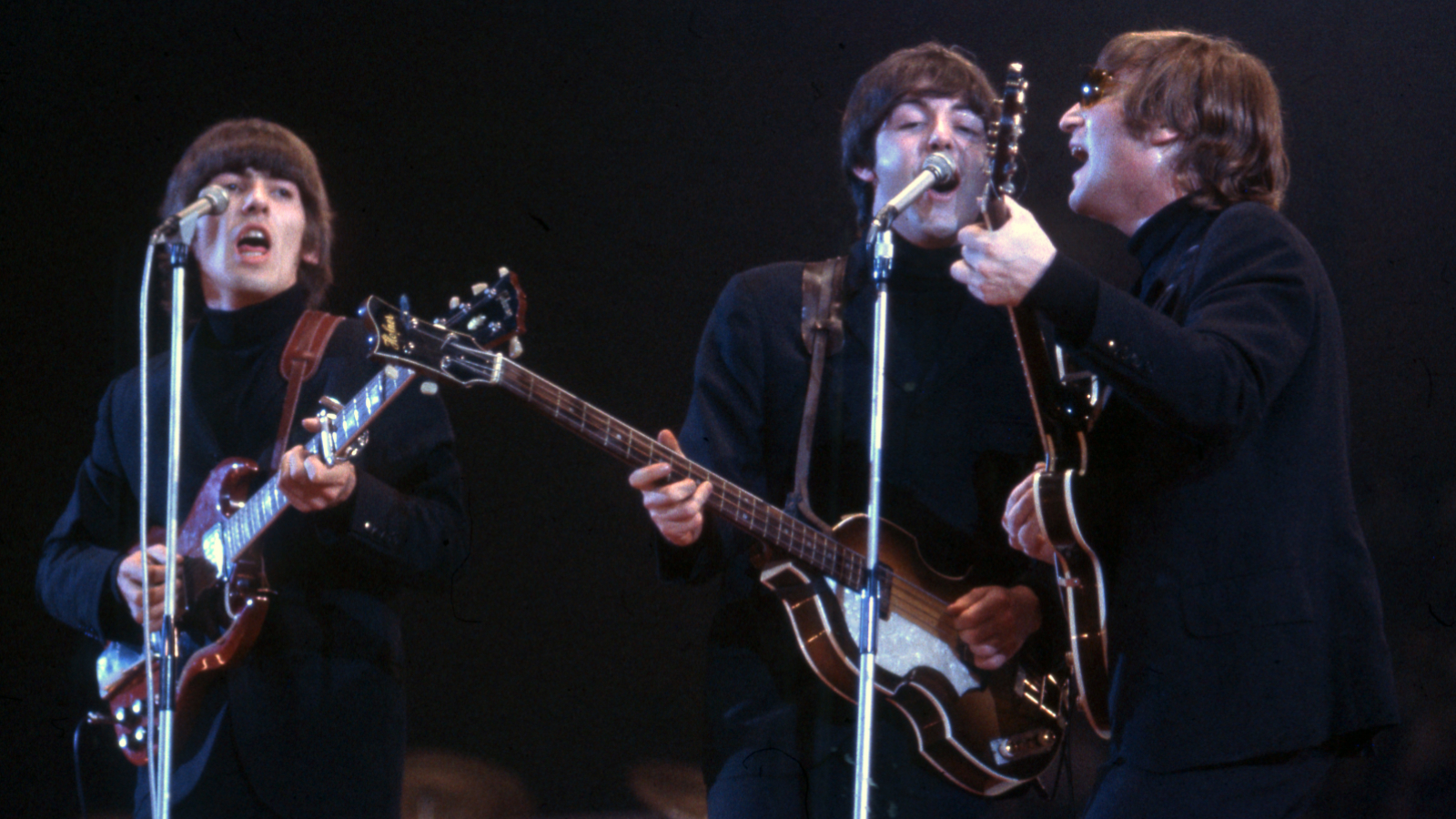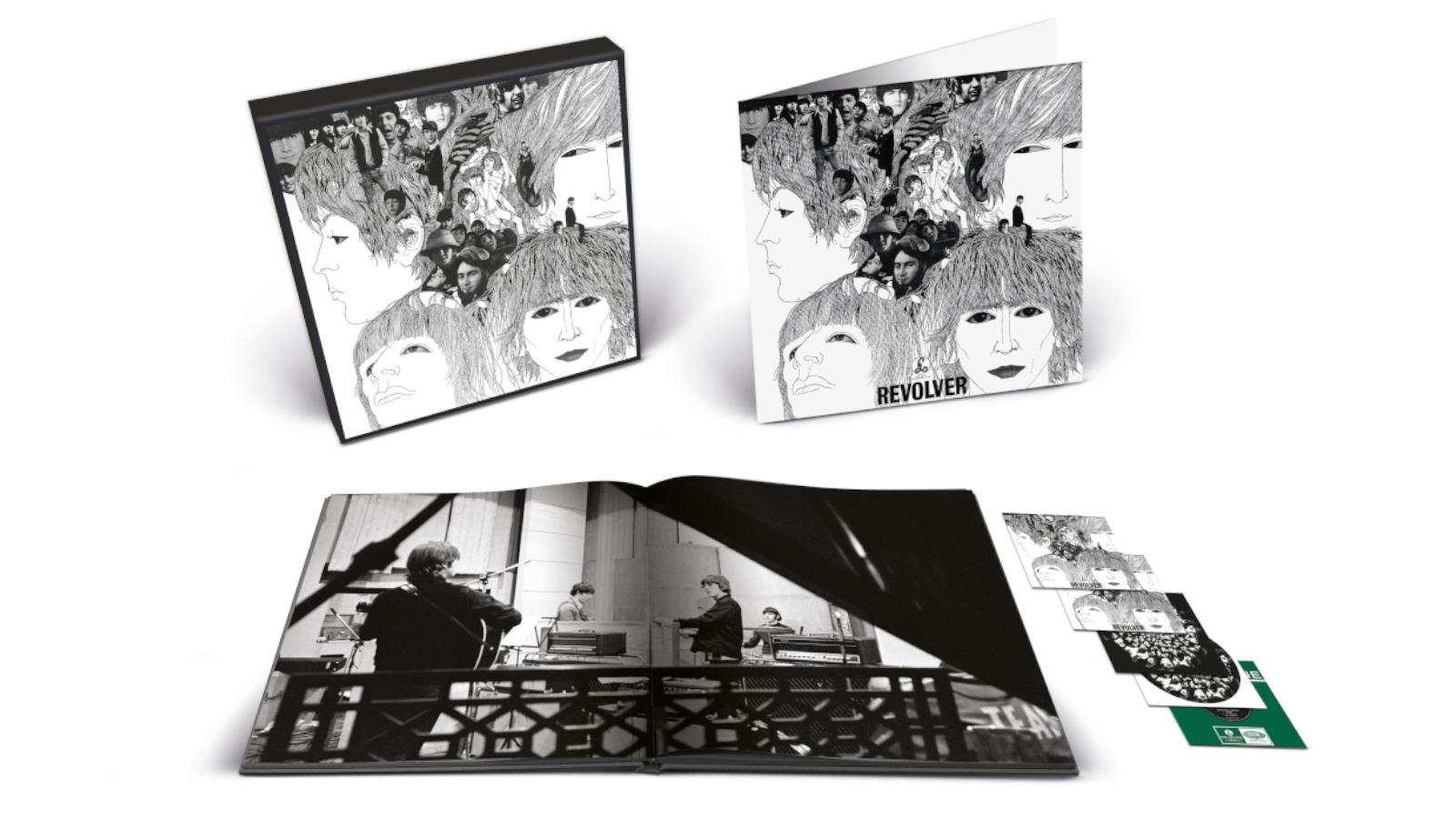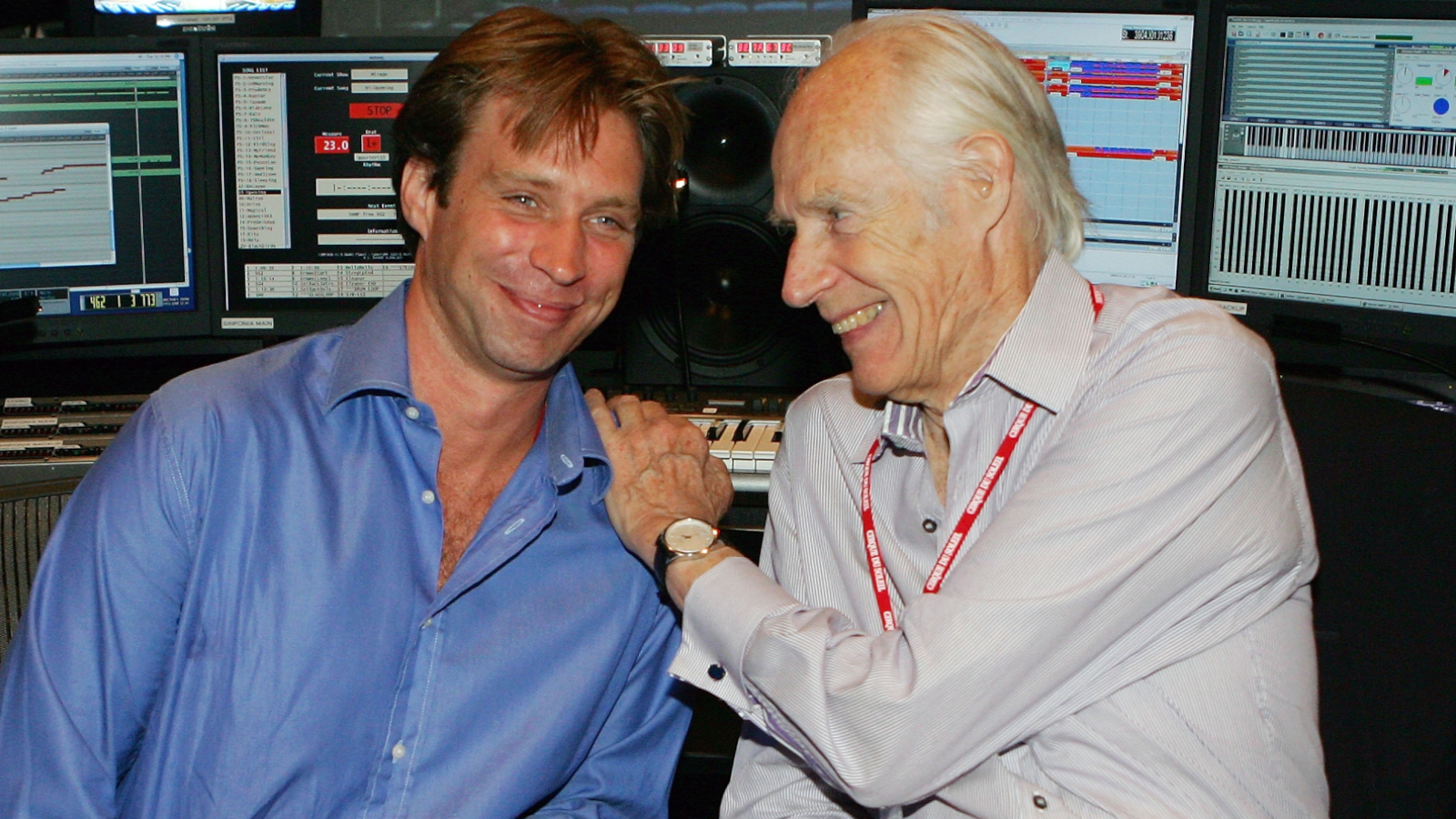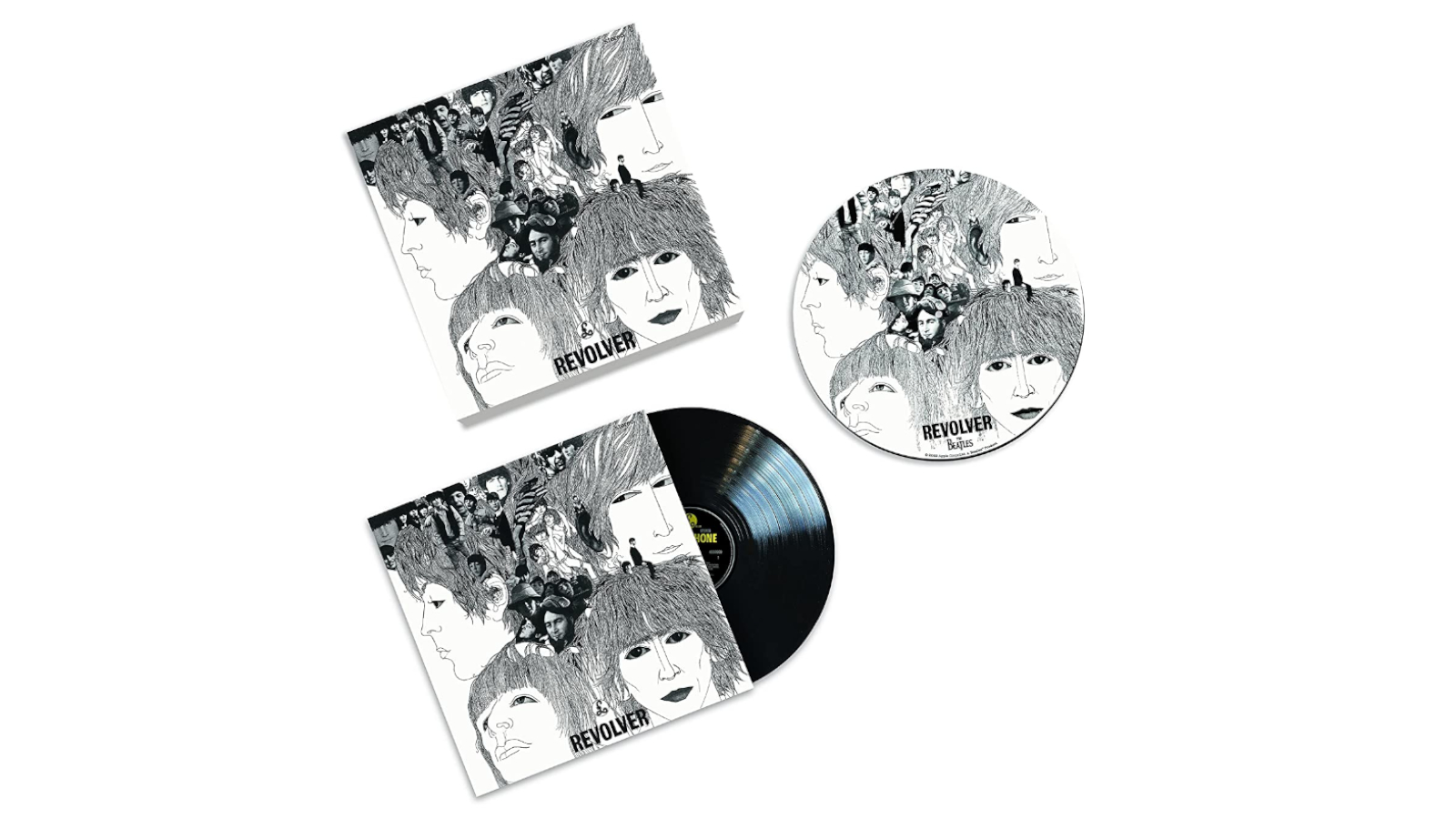“I Think It Comes From Their Fingers and the Guitars”: Listen to Tracks From the Beatles’ New ‘Revolver’ Releases and Read Giles Martin’s Unmissable Interview on Re-Mixing (and De-Mixing!) the Landmark Album
Wielding a sonic scalpel, the producer presents the Beatles’ 1966 milestone recording as you’ve never heard it

The Beatles’ Revolver is a psychedelic rock landmark, a sonic marvel that marked a sea change in music production and culture.
Joined by their new recording engineer Geoff Emerick, the group and producer George Martin set about using the recording studio as their sonic workshop, creating sounds never heard before and introducing classical Indian music into Western pop rock.
But like most pre-1968 Beatles albums, Revolver was recorded to four-track tape, with the result that the main rhythm instruments – usually guitar, bass and drums – were placed together on one track, making it impossible to separate them for stereo mixes.
Until now, that is.
Using groundbreaking de-mixing technology, Giles Martin – George Martin’s son, and the producer behind much of the group’s reissues in recent years – was able to separate the instruments, and even the individual pieces of the drum kit, without losing the room ambience or creating ugly artifacts.
Fans can hear the results on October 28, when Revolver is reissued in a new stereo mix that reveals the music with newfound clarity and definition.
In addition to a Standard 14-track edition, Revolver will come in a 29-track two-disc Deluxe edition that includes session highlights, and a five-disc Super Deluxe edition with 63 tracks, including 31 session cuts and the album’s original mono master.
All the latest guitar news, interviews, lessons, reviews, deals and more, direct to your inbox!

Both deluxe editions will boast new stereo mixes of the album singles “Paperback Writer” and “Rain.”
Revolver’s new Dolby Atmos mix will be released digitally.
At a listening session for the reissue, Martin demonstrated the technology using the rhythm track from “Taxman,” removing the electric guitar, then the bass, and then the drum kit, piece by piece, down to the snare.
As Martin explained in our subsequent interview, this novel technology brings with it a new dilemma: “How does one represent an artistic work years after nearly everyone who created it is no longer around to weigh in?”
What were the challenges of de-mixing and re-mixing Revolver?
Well, it’s funny. Geoff Emerick, the Beatles and my dad were pretty good to begin with, and the album sounds pretty good. And, you know, it is very compressed, and I’ve still respected that.
But in order to have the band sound like they’re in a room, you kind of have to pull them apart to a certain extent and put some air between them.
And you know, on Revolver, John Lennon never sings in the same voice. It’s different on every song. Same thing with the guitars and drums. Remixing it was like mixing eight different bands.
It’s come down through history that Geoff Emerick was critical to helping your father and the Beatles create these new sounds. Is that assessment accurate?
Listen, Geoff was a genius, yes. But I think it comes from their fingers and the guitars; my dad would say this, and Geoff would have said this as well, I think – before he became too bitter.
The sounds came from themselves and their willingness to innovate, especially with guitars. So the disappointing answer for everyone is, “It’s the band.” And the reason why it’s disappointing is because you’re looking for what knob you can turn – [laughs]
I think it comes from their fingers and the guitars
Giles Martin
And what box you can plug into.
Absolutely – to get that sound. And that’s the tricky thing.
There’s a video of you, your father and Dhani Harrison listening to a “lost” George Harrison solo on “Here Comes the Sun” that you discovered. Were there any surprises like that with Revolver?
No, but there was a thing with fuzz guitars: They were originally going to play the horn lines on “Got to Get You Into My Life,” but they decided to go with brass instead.

Just the opposite of what happened on the Rolling Stones’ “Satisfaction.”
Yeah! So that exists in a previous version of the song. But because the recordings were four-track, if they didn’t get something right, they’d just record over it. So there are no hidden gems. But you really get a sense of their efficiency.
For example, “Paperback Writer”: There’s just one and a half takes of the basic track, which is guitars and drums. So I’ve just left the tape running for this box set. They play, it breaks down, they immediately play it again, and that’s it! It’s all done but the bass and vocals. It’s very efficient.
Revolver is a psychedelic rock landmark, and I imagine de-mixing presents you with an opportunity to make it more vivid – more what they might have done had the multitrack technology existed.
The tricky thing is, the claustrophobia you get from mono can make things sound more psychedelic. And when you open things up, it can sound less so. And the challenge is with something like “Tomorrow Never Knows”: The expectation is it’s this crazy song. And it is – but it isn’t.
I just try and make songs sound how we remember them, not how they are
Giles Martin
There’s bass and drums, there’s a bit of tamboura, there’s an organ, tape loops… And that’s it! There’s not much going on. And so you really have to work at it to create something that satisfies the expectation.
When I was working with [Martin] Scorsese on the George Harrison film [the 2011 documentary Living in the Material World], he questioned my revisionist approach to mixing. And then I played him some stuff I’d done, and he liked it. And I said, “I just try and make songs sound how we remember them, not how they are.”
Having literally dissected Revolver, what’s your takeaway about the Beatles at this point in their musical evolution?
You can hear them like kids in the back of a car saying, “We’re bored! We want to do something different.” That’s what’s going on with Revolver. It’s like a prog record – kind of like, “Look how many ideas we have!”
It is kind of a fearless record
Giles Martin
And what I find fascinating is that they went from being this four-headed monster with Beatles suits on to being these four individuals going in different directions – but helping each other.
Like, no one’s saying, “Come on, John, change chords on ‘Tomorrow Never Knows.’” Or, you know, “Why are we doing Indian songs? We’re from Liverpool!” It’s like that pure confidence of jumping out of the plane without a parachute and knowing you’re going to land safely.
It is kind of a fearless record.
Pre-order the Revolver Special Edition Super Deluxe 5CD box set here.
Pre-order the Revolver Special Edition Super Deluxe 4LP + 7” Vinyl EP 7", box set here.
Pre-order the Revolver Deluxe Deluxe Edition 2CD here.

Pre-order the Amazon exclusive Revolver Special Edition 1LP vinyl & turntable mat here.
Christopher Scapelliti is editor-in-chief of GuitarPlayer.com and the former editor of Guitar Player, the world’s longest-running guitar magazine, founded in 1967. In his extensive career, he has authored in-depth interviews with such guitarists as Pete Townshend, Slash, Billy Corgan, Jack White, Elvis Costello and Todd Rundgren, and audio professionals including Beatles engineers Geoff Emerick and Ken Scott. He is the co-author of Guitar Aficionado: The Collections: The Most Famous, Rare, and Valuable Guitars in the World, a founding editor of Guitar Aficionado magazine, and a former editor with Guitar World, Guitar for the Practicing Musician and Maximum Guitar. Apart from guitars, he maintains a collection of more than 30 vintage analog synthesizers.
